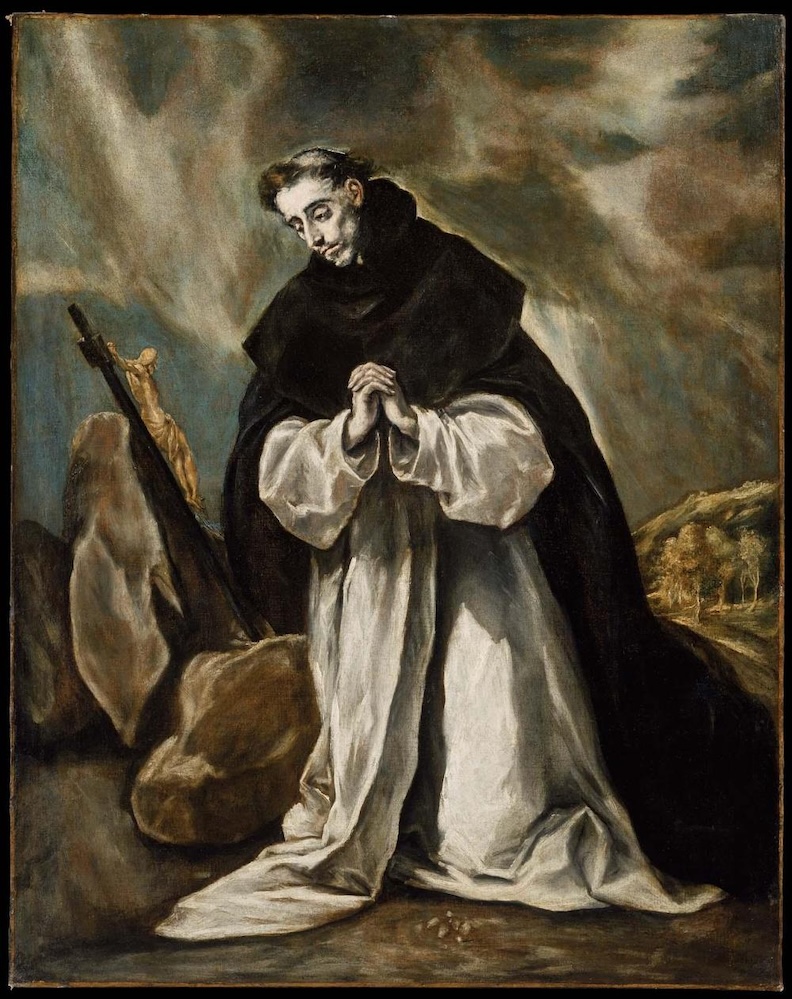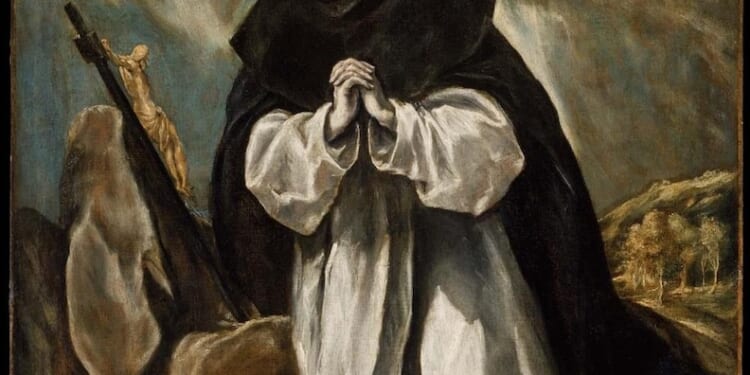Prayer, an elusive conversation with God, confuses many as St. Paul tells us, “For we do not know how to pray as we ought.” (Romans 8:26) The Spirit, Who prays in us “with sighs too deep for words” (Romans 8:26), searches our hearts, revealing our innermost secrets, fears, dreams, and desires. This inner revelation worries our conscience, for the depth of our sin becomes a reality.
But so, too, the depth of the Father’s love, revealed to us through Jesus and the Spirit, frightens our souls, for we experience the power and presence of His purity, purifying our weakened hearts. Divine Love is totally beyond comprehension, as St. Paul explains, “Eye has not seen, nor ear heard, nor the heart of man conceived, what God has prepared for those who love him.” (1 Corinthians 2:9)
This intimidates our hearts. We cannot fathom the breadth, height, and depth of Divine Love wanting to engage in our lives. Yet this is what prayer is. It is not so much our conversing with God, as much as it is God speaking directly to us, as He did with Moses, face to face.
Such intimacy upsets our stability. Feeling unworthy because of our sinfulness, we hide from Divine Love as Adam and Eve did, ashamed, because our sinfulness dehumanizes us. Unworthy, we hide rather than engage. We flee rather than convert. We freeze, feeling exposed not trusting God, for we do not trust ourselves.
Prayer exposes our innermost self not only to our conscience, but to our Father, making us feel uncomfortably self-conscious. Yet, the Father speaks to us heart to heart, not to intimidate, but to affirm. Affirmation is the purpose of prayer, affirming how beloved we are to the Father.
In his Apostolic Letter Novo millennio ineunte, St. John Paul reflects on our encounter with God’s transcendence: “Prayer can progress, as a genuine dialogue of love, to the point of rendering the person wholly possessed by the divine Beloved, vibrating at the Spirit’s touch, resting filially within the Father’s heart.” (32)
Through prayer, the Father speaks, revealing us as His children. He gives us His identity, and we become one with Him, partaking in His life. In prayer, He reveals His Son, Who came to find us, feed us, and save us from our self-doubting reservations. We are no longer lost and forsaken, but found radiating Divine Love.
During prayer, the Father reveals His affirming love, teaching us not only what it means to be a son or daughter, but more importantly, how to be one. He, through the Son and Spirit, infuses Himself into our very being. This grace, God’s gift of Himself transforming our lives, converts us from living solely for created wealth to seek the source of these earthly treasures, the Father Himself. Filled with grace, we, as Mary did, radiate Christ glorified.

The Holy Spirit opens His treasure for us, unveiling our beauty and goodness if we avail ourselves of His grace. Opening ourselves to the Spirit reveals “the power and wealth and wisdom and might and honor and glory and blessing” (Revelation 5:12) of Christ dwelling in us, if we follow Him.
St. Paul teaches this: “According to the riches of his glory he may grant you to be strengthened with might through his Spirit in the inner man, and that Christ may dwell in your hearts through faith.” (Ephesians 3:16-17).
Wisdom discovers the richness of His glory. Wisdom, the lamp that enlightens our intellects, touches our souls, making us rich in grace: God’s life and love. This richness comprehends the thoughts of God and receives graciously all the gifts of the Spirit so we may interpret Divine Truths correctly, for we “possess the Spirit.” (I Corinthians 2:13)
Possessing the Spirit through prayer, “makes us an everlasting gift” (Eucharistic Prayer III) back to the Father.
Through prayer, the Holy Spirit breathes divine life into our hearts. Our heart, an abyss longing for divine life, participates in God’s redeeming love when it is docile to the Spirit. Docility, the ability to receive gifts and divine truths, gives strength to our weaknesses, insights into our dilemmas, courage in confrontation, peace in time of conflict, and, most importantly, assurance in time of doubt.
As St. John Paul II affirmed: “Therefore, the Holy Spirit not only enables us to pray, but guides us ‘from within’ in prayer.” (Dominum et vivificantem, 65). His presence gives our prayer a divine dimension because “He who searches the hearts of men knows what the mind of the Spirit is, because the Spirit intercedes for the saints according to the will of God.” (Romans 8:27)
Prayer, instigated by the Holy Spirit, invokes the Father’s love. Each prayer, then, is an invocation, allowing the Holy Spirit to act in our lives, either giving us strength to endure, understanding to resolve difficulties, or insights into the divine plan of salvation.
Invoking God requires trust. Without trust, as St. James warns, our prayers go unanswered, not because we are not praying but because we are praying wrongly. (James 4:3) Our intentions are skewed. Instead of rightly ordering our lives according to God’s ways, we want God to rightly order His ways to ours. This distorts prayer from seeking, knocking, and asking to receive what the Spirit wants to give.
We have to constantly avail ourselves of the inspirations of the Spirit, following the counsel of St. Paul: “Pray at all times in the Spirit, with all prayer and supplication. To that end keep alert with all perseverance, making supplication for all the saints.” (Ephesians 6:18)
True prayer then constantly seeks justification, our desire to be right in the eyes of God, not self-righteous. It drives our sanctification in which our sinfulness is changed into saintliness. The Spirit thus prepares us for glorification. In glory, we rejoice and exalt for we, the bride of Christ, imbued with grace, accomplishing “the righteous deeds of the saints.” (Revelation 19:8)
The post God Talk appeared first on The Catholic Thing.











